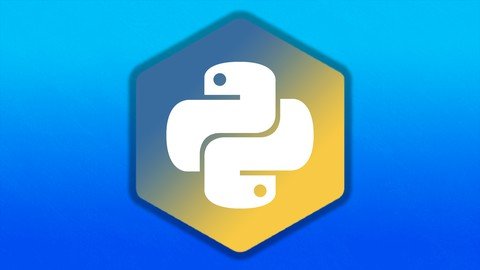
Published 06/2022
Genre: eLearning | MP4 | Video: h264, 1280×720 | Audio: AAC, 48.0 KHz
Language: English | Size: 3.47 GB | Duration: 39 lectures • 9h 3m
A Master Course from Beginner to Expert
What you’ll learn
Programming Fundamentals
Python Programming
Object-Oriented Programming
Introductory Software Development
Computer Science
Procedural Programming
Explicit Typing
Implicit Typing
Functional Programming
Imperative Programming
Generic Typing
Dynamic Typing
Requirements
Internet access
Description
In this course, students will learn elementary programming concepts with the Python (3) language, with an additional section studying Java and the relation between the two languages. Learning Python will allow students to develop the basic skills for functional and object-oriented programming and the fundamentals of polymorphism and imperative programming, as well as a short study on regular expressions. Students can use this knowledge to take on learning other higher-level languages such as C++, Swift, and C# (as well as scripting and scientific languages such as Octave, R, Julia, and Ruby) in an accelerated manner. The class will focus on building programming skills from fundamental keywords to high-level abstraction, in hopes that the student will then continue on to learn a high-level programming language afterward.
Students will learn the following aspects of programming using the Python language
Section 1
-Introduction, how to succeed in the course, setup
-What is Python, understanding programming
-Hello World and ‘__main__’
-Input and Output, Commenting and Docstrings
-Data Types, Arithmetic and Assignment Operators, Numerical Operations
-Strings and String Operations, ASCII
-String Formatting
-Type Conversion, In-Place and Walrus Operators
Section 2
-PEP and The Zen of Python
-Boolean Expressions and Conditional Statements
-Chained and Nested Conditions
-Logic Operators
-Loops: for, while, ‘range’, ‘in’
-Functions
-Recursion
-The Standard Library and pip
Section 3
-Lists and List Functions
-List Slices and Matrices
-Dictionaries and Dictionary Functions
-Tuples and Tuple Unpacking
-The ‘itertools’ Library
-Sets and Set Functions
Section 4
-Random Numbers, Math and Data Science Functions
-Exceptions and Raising Exceptions
-Exception Handling, ‘finally’
-Assertions
-File I/O
-List Comprehensions and Ternary Operator
Section 5 – Regular Expressions
-Character Matching
-Data Extraction, Combining Searching and Extracting
-The Escape Character and grep
Section 6 – Objected-Oriented Programming
-Classes
-Properties and Modules
-Data Hiding and Dunder/Magic Methods
-Inheritance
-Class Methods and Static Methods
-Making a basic GUI with Tkinter
Section 7 – Functional Programming
-Intro to Functional Programming, First-Class Functions
-Anonymous Functions and Lambda Expressions
-Iterators, Generators, and Decorators
-Higher-Order Functions, ‘map’ and ‘filter’
-Using ‘reduce’
-Advanced Function Arguments (‘*args’, ‘**kwargs’)
Section 8 – Capstone
-Final exam
-Capstone project
Optional textbooks
-“Practical Programming: An Introduction to Computer Science Using Python 3” by Paul Gries, Jennifer Campbell, and Jason Montojo (Various prices by format and rental, very cheap on Amazon)
-“Python for Everybody: Exploring Data in Python 3” by Charles Severance (Various prices by format and rental, very cheap on Amazon)
-“Python Crash Course, 2nd Edition: A Hands-On, Project-Based Introduction to Programming, 2nd Edition” by Eric Matthes (Various prices by format)
Who this course is for
Students interested in learning programming with any level of experience, but especially beginners or anyone unfamiliar with Python as well.
Password/解压密码www.tbtos.com